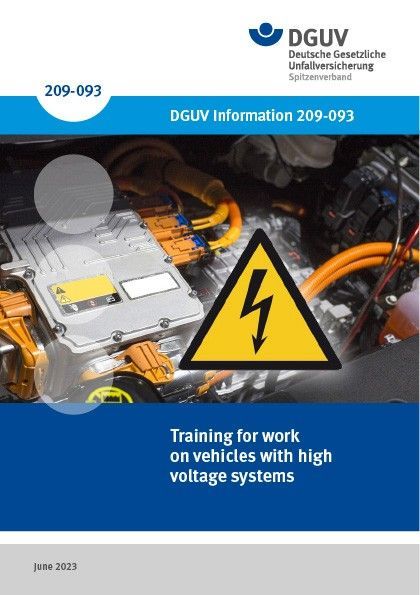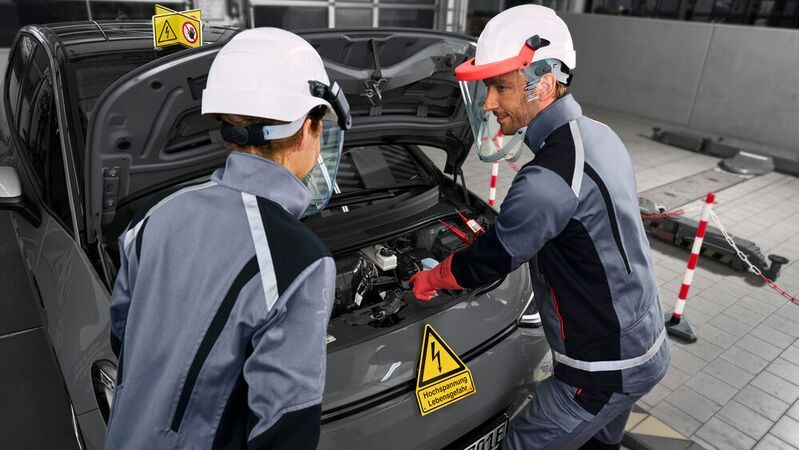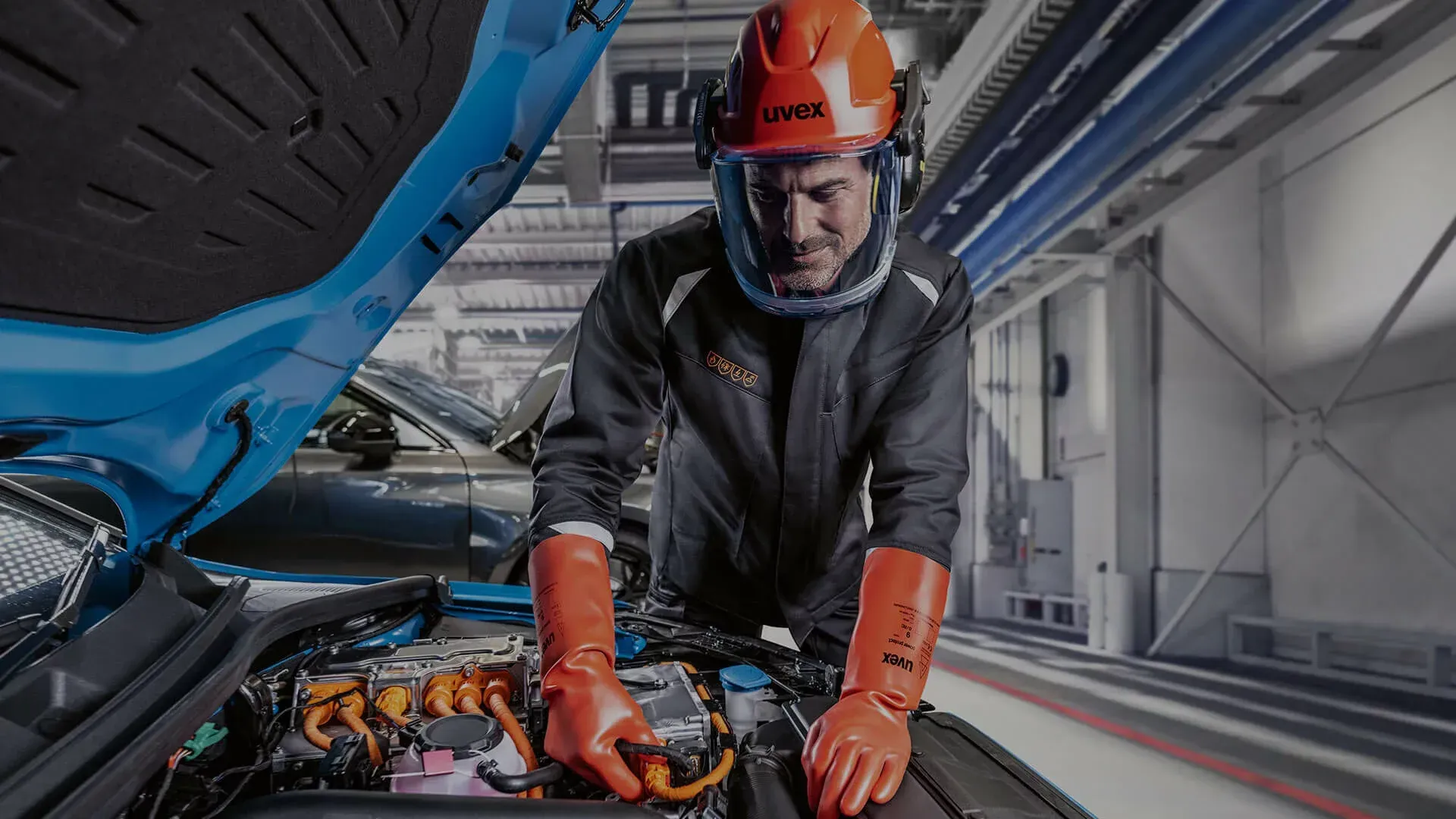High-Voltage Training
according to DGUV 209-093
Qualification for work on vehicles with high-voltage systems

Tasks of the DGUV
The DGUV is the umbrella organization of all German employers' liability insurance associations and is responsible for the implementation, coordination and promotion of joint measures and research in the field of prevention of occupational accidents, occupational diseases and work-related health hazards.
As part of its tasks, the DGUV publishes regulations, rules and information that are not laws, but have a statutory character. Those who adhere to them can assume that their actions are legally compliant.
High voltage as defined in
DGUV Information 209-093.

The DGUV Information 209-093 defines the term high voltage:
“High voltage includes voltages
> 60 V and ≤ 1,500 V direct current (DC) or
> 30 V and ≤ 1,000 V alternating voltage (AC)
in vehicle technology, especially in hybrid and fuel cell technology as well as electric vehicles."
This definition of the term "high voltage" ("Hochvolt" in German) is used exclusively in connection with electric vehicles and their components.
It is not to be confused with the term "high voltage" ("Hochspannung" in German) used in traditional electrical engineering.
Overview of the high-voltage training classes offered by FEE:







